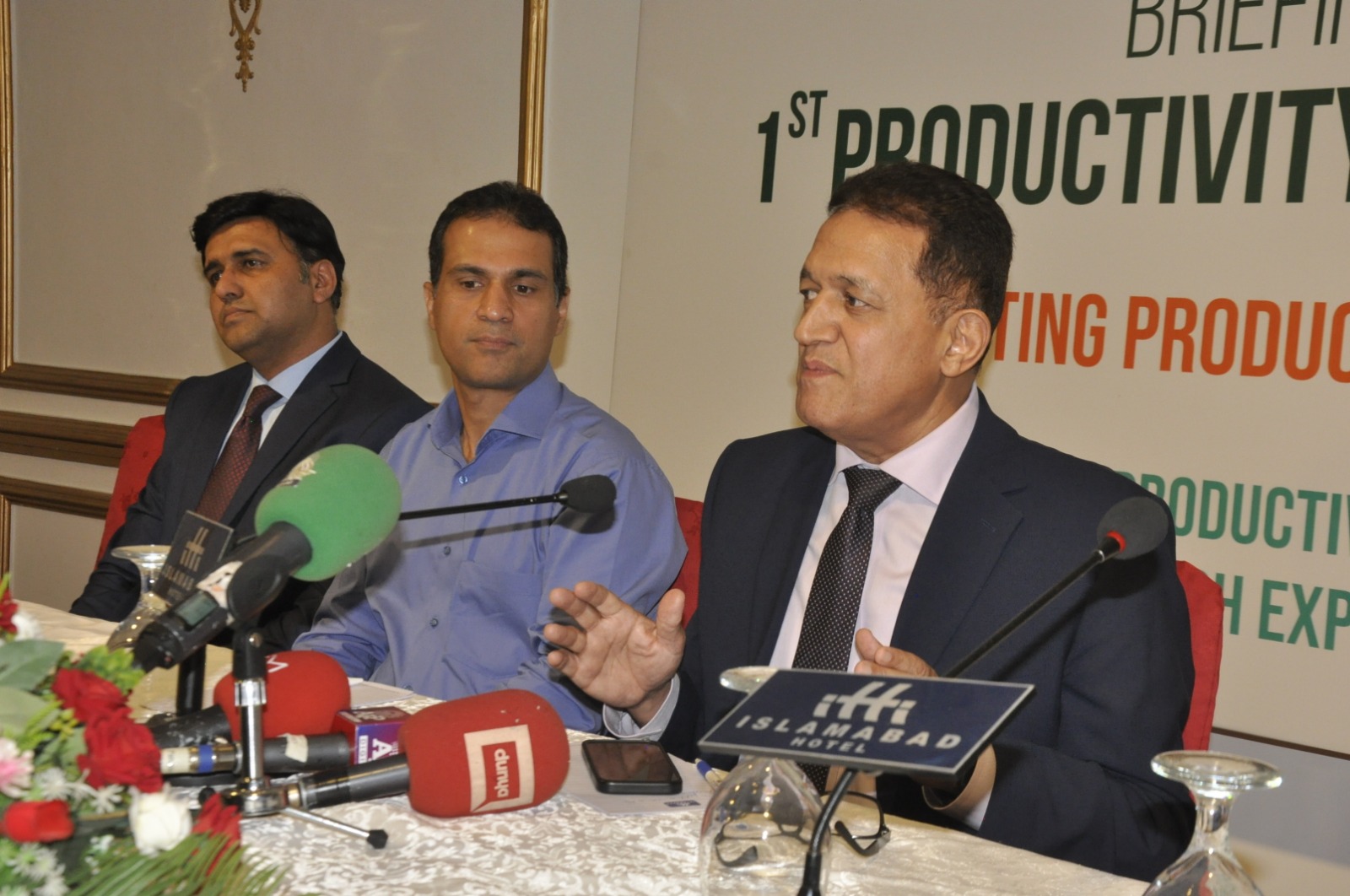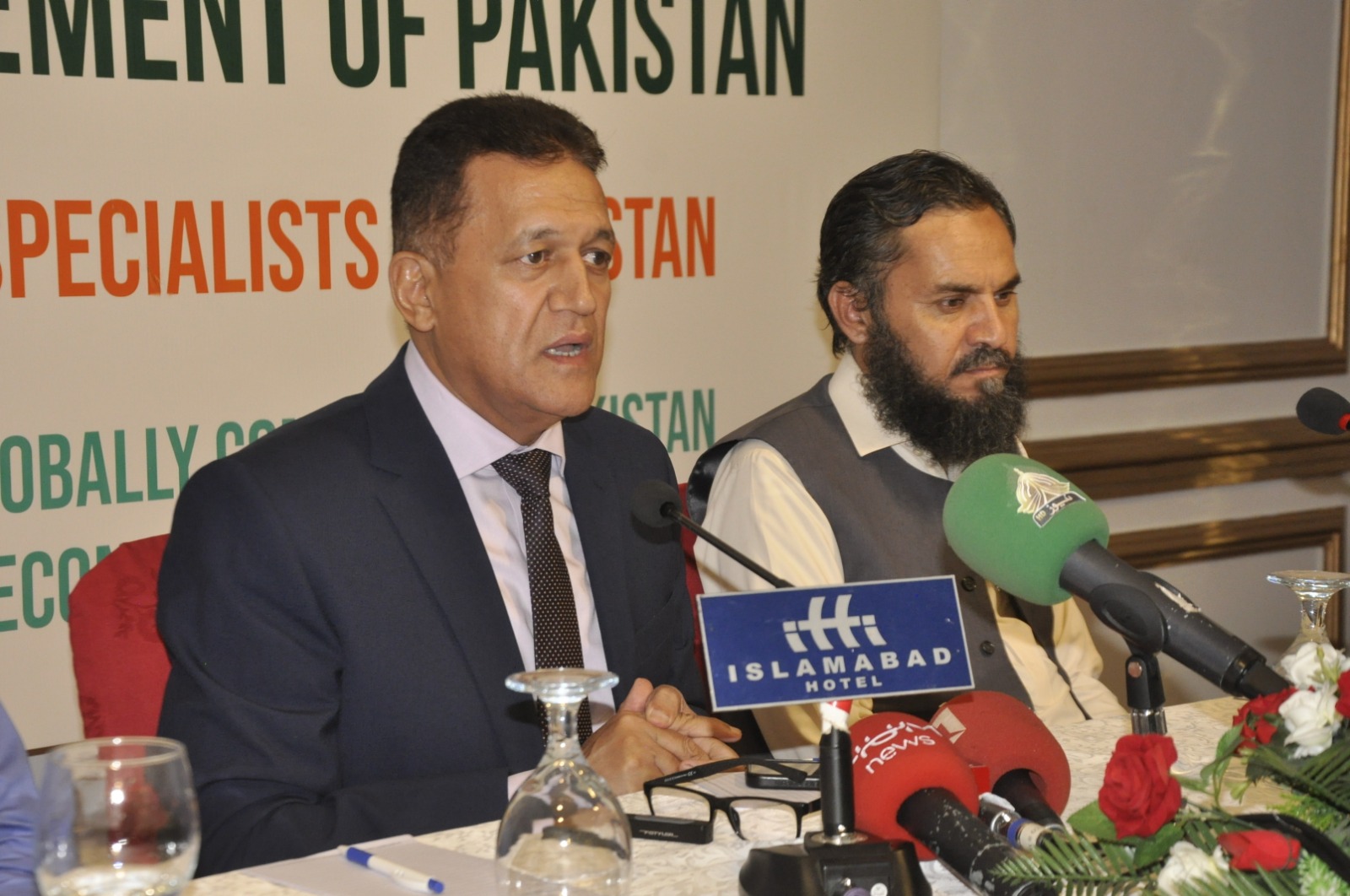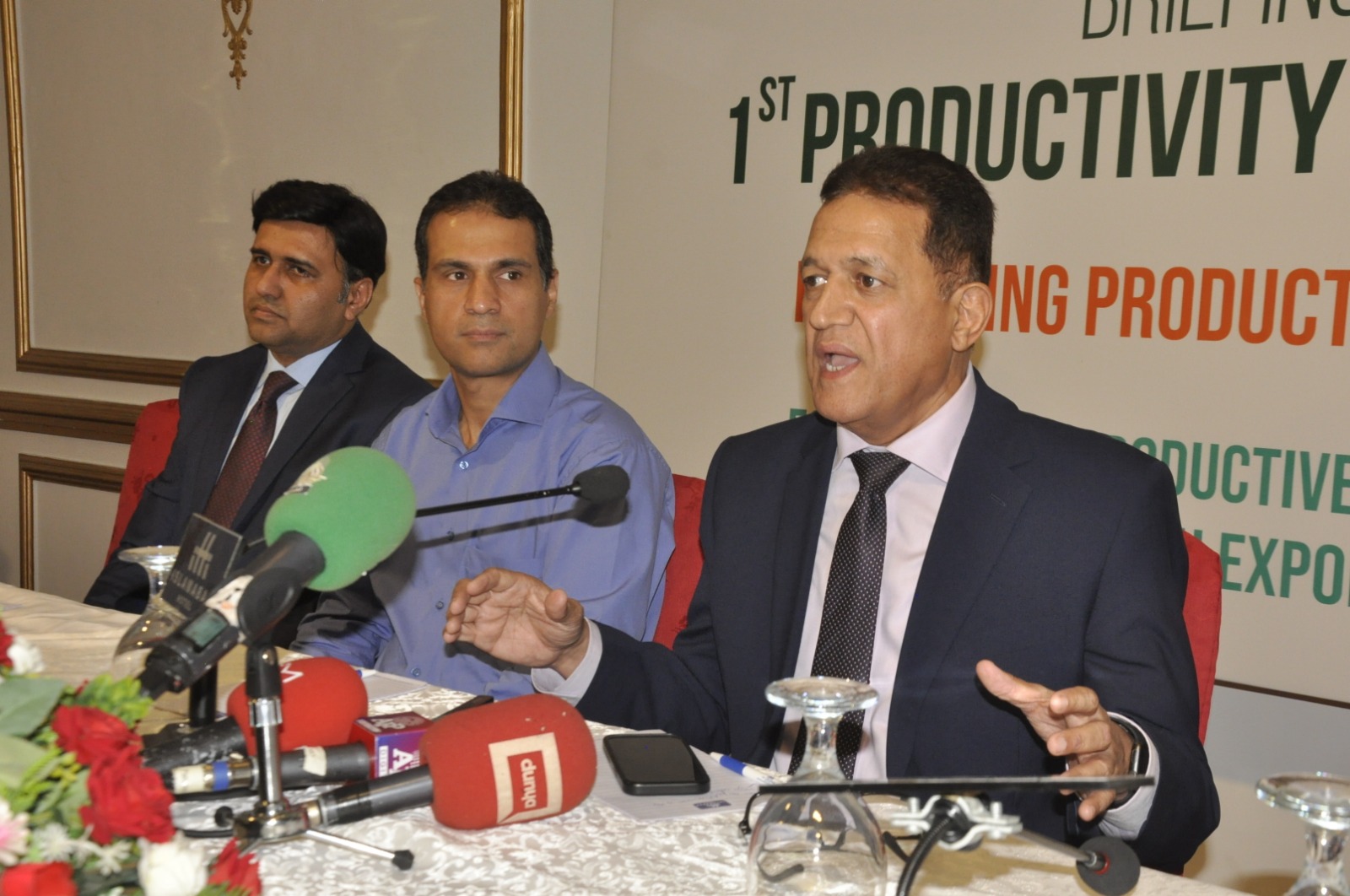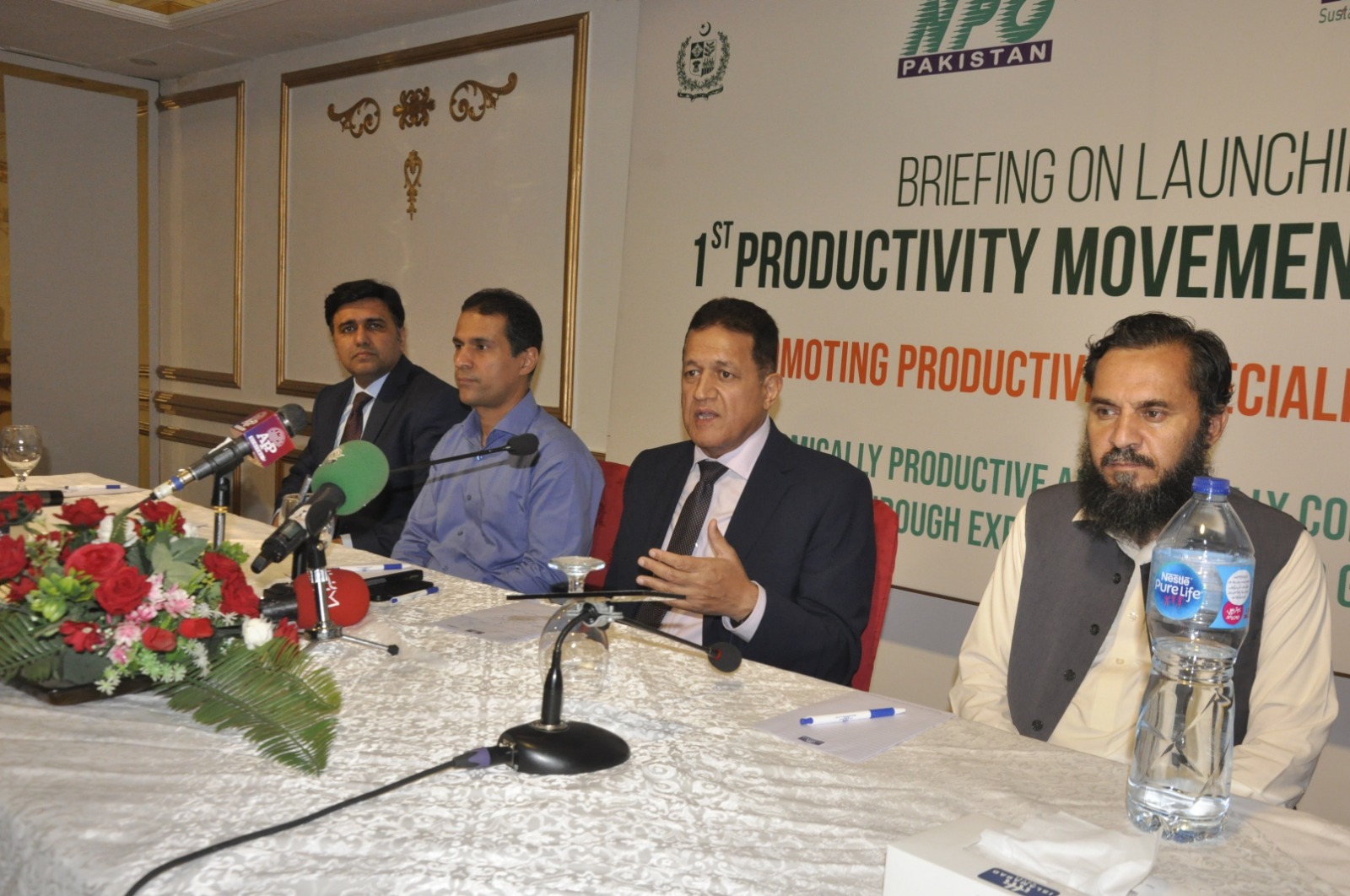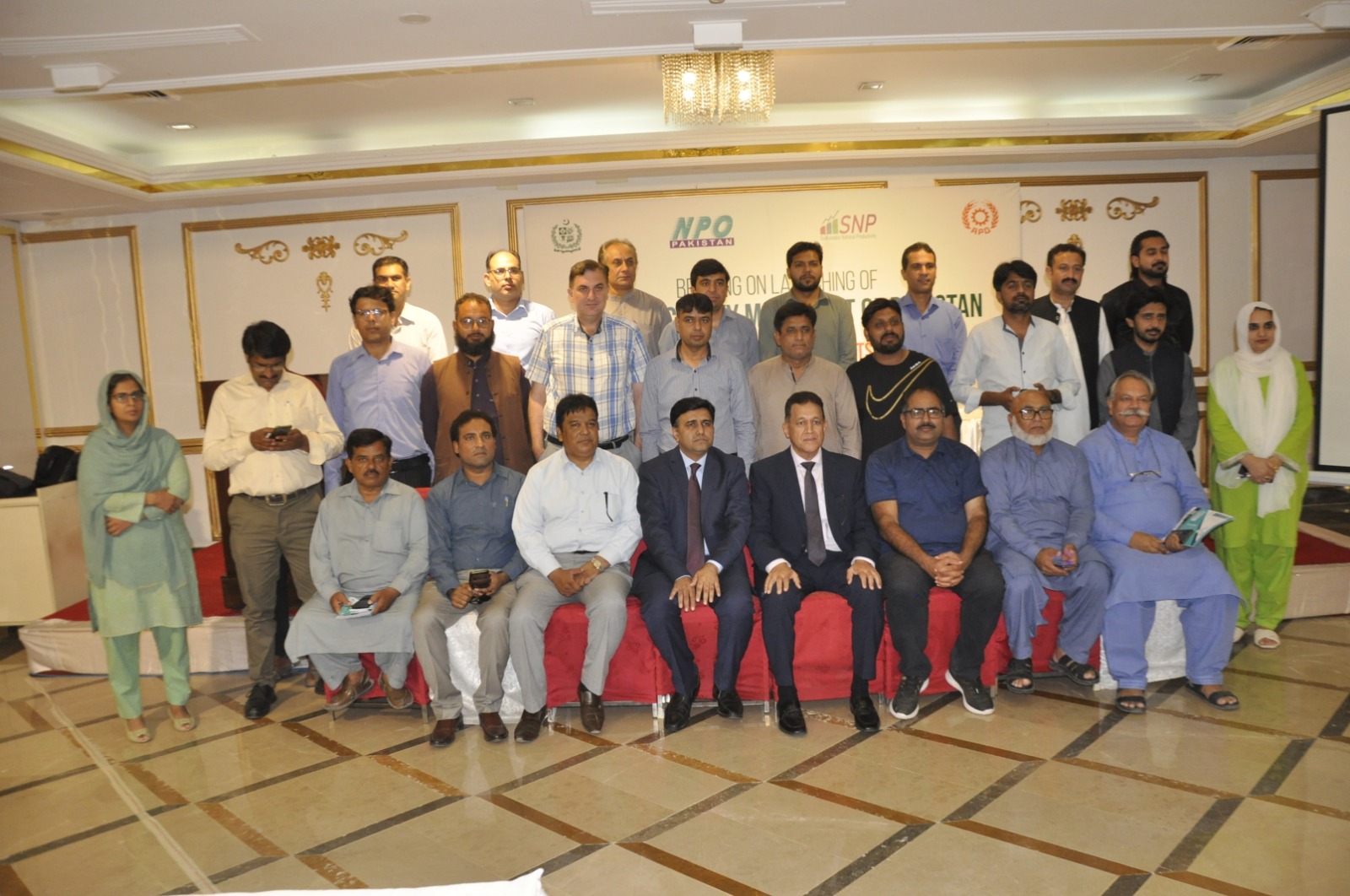A key development initiative of the NPO is “Improving Competitiveness through Sustainable National Productivity (SNP)” – launching first productivity movement in Pakistan. It is a PSDP funded project with an objective to achieve competitiveness through sustainable national productivity. The project is providing the essential support for implementation of the UN Sustainable Development Goals particularly 8.2, 8.4, 9.2,9.4 &. It is supporting and complementing following sectoral reforms / initiatives aimed at increasing productivity across the industrial/manufacturing, services and agriculture sectors. It is aimed at enabling self-sustaining enterprises to be competitive by enhancing productivity thereby increasing output, boosting their share in the international market and raising the overall level of prosperity and wellbeing of the nation. Innovation, value addition and continuous improvement are keys to improve Productivity.
- Three-Year Rolling Growth Strategy (3YRGS) – Agenda for Economic Diversification, Transformation and Jobs-led Growth,
- Turn Around Pakistan: Module-I (Pillar VI) Toward Improved Competitiveness through Enhanced Productivity, Innovation and Quality for Export-Led Growth”.
- 5Es frame work; with an aim/ goal of transformation of economy towards export led economic growth with four objectives; increasing productivity, Product and market diversification, promoting SMEs. and fostering an enabling business environment.
- National productivity Master Plan; Flagship initiative under 5Es framework, the master plan’s vision is to “Doubling up the National Productivity of Pakistan”. To achieve such a goal, it proposes three main pillars essential – vibrant industrial innovation, upgrade of infrastructure, and better public governance. These pillars are considered key factors that will enhance the productivity of Pakistan.
- OUTLOOK 2035-MANUFACTURING, COMMERCE & MINERAL SECTORS” A planning commission sectoral outlook regards NPMP as key intervention to attain the desired aims of socio-economic development and spurring the performance of Manufacturing, Commerce & Mineral sectors.
To further elaborate the SNP project, keeping in view the international benchmarks and practices it has following four stages. (i) Awareness stage (ii) product identification, design and development stage (iii) implementation stage(iv) continuous improvement stage.
The project is in progress at first stage of awareness phase. The objective of the awareness stage is to create widespread awareness of productivity and its benefits among companies and the workforce. The focus is to demonstrate the competitive edge by gaining higher productivity. It may be achieved by fostering positive attitudes by promoting productivity through teamwork and recognition for companies and individuals. Various activities are planned for greater impact of awareness stage.
Key activities of awareness phase / stage of Improving Competitiveness through Sustainable National Productivity (SNP)”- include activities such as Launch of Productivity Movement, Engagement of National/International Experts through APO Assistance, Productivity Portal, Productivity (Curriculum and Booklets) for Schools & Industry, National/ International Conference, Documentaries, Productivity (News Letter and Journal), Awareness Sessions, Seminars, and Trainings on Productivity Tools & Techniques, Online Courses, Print & Social Media Campaigns, Productivity Competitions (Poster, Article, Debate), Productivity Walk and day/weeks Celebration etc.
CEO NPO, Mr. Muhammad Alamgir Chaudhry has briefed the Role and Importance of Productivity Movement of Pakistan. CEO also presented the progress updates and achievements of PSDP project “Improving Competitiveness through Sustainable National Productivity (SNP)”- to the journalist and print and electronic media professionals.
He briefed that to increase awareness among all stake holders, among category of general awareness 10,209 individuals have been educated and been given awareness about the concept of productivity. 3651 students of schools and technical institutes haven been imparted education focusing on productivity concept through various sessions spreading all over the Pakistan. with a focused targeted audience of industrial workers, 640 industrial workers have been trained through renowned productivity experts on productivity tools and techniques and good practices.
He added that, Two Productivity booklets; one for technical schools and industry and other one for public and schools have been developed/adopted after review by international experts which are being disseminated to stakeholders. whereas two curriculums/ productivity modules have been developed and acknowledged by international experts and were shared with concerned authorities i.e. NCC, NAVTTC and Provisional TEVTAs for inclusion of these in their curricula, training and certification programs. Master Trainer Program on these modules / curricula with collaboration with NAVTTC is in progress across Pakistan to disseminate the message down the line by preparing pool of master trainers.
He told that a value addition of approximately more than Rs. 100 million has been made through a comprehensive campaign of fully funded on the shop floor capacity building program for productivity improvement implementation plan in the industry. various interested firms contacted in response to media advertisement and got benefit of improving their productivity through productivity gap analysis by NPO experts followed by shop floor capacity building for plugging these gaps identified in GAP analysis.
He deliberated that various productivity awareness tools are being used to spread awareness to inculcate the culture of productivity. SNP has developed an online portal which is live now and is a knowledge hub to get awareness and support on the matters of productivity. under this project, productivity weeks were celebrated. During this productivity week, walks in major cities (Islamabad, Lahore, Karachi, Quetta, Peshawar, Faisalabad and Multan) were conducted to promote the message, these walks were coupled with awareness sessions by renowned national productivity experts. Different productivity competition (poster, debate and article) was held. Debate and poster competition were held in NED university, UET Lahore, IBA sukkar, University of Swabi and MNS university of agriculture Multan. whereas an article/ idea suggestion generation competition was organized at national level and best article finalization is under review by the panel of experts.
A productivity journal in collaboration with APO is in designing phase and the research work by of experts in the fields of productivity would be showcased in it.
He told about another significant achievement of NPO Pakistan as it has successfully attained the status of Certification Body (CB) of APO Accreditation Body (AB). Pakistan is 4th in the row who attained APO Certification Body Status in 21 APO member countries. APO-Japan Accreditation Body (APO-AB) has granted accreditation to the Productivity Certification Body of Pakistan (PCBP) for a period of four years effective from 10 May 2023 to 9 May 2027 for certification of productivity specialists in Pakistan. The status of the Certification Body will help NPO Pakistan in producing certified productivity specialists first time in Pakistan and ultimately benefits the productivity and quality journey in Pakistan. Dr. Indra Pradana Singawinata, Secretary General, APO-Japan also congratulated NPO Pakistan on its determination and commitment leading to this hallmark achievement. The basic purpose of this program is to narrow the demand supply gap in the context of the requirement of productivity specialists to help us in strengthening national productivity, quality, and competitiveness for sustainable socioeconomic development.
He also elaborated that Pakistan is recognized globally as a high potential economy but unfortunately in past many years, the country has not been able to utilize its potential and gain competitive advantage in global and regional market. The major reasons behind country’s slow growth rates of output are lack of innovation, low level of investment, technological inefficiencies and limited R&D resulting in lower productivity and non-competitiveness. These competitive weaknesses highlighted in Global Competitiveness index 2019-World Economic Forum as Pakistan ranks 110 out of 141 countries due to low labor market efficiency (120), technology adoption (131), and higher education & training (125).
He briefed that the Government of Pakistan is very much committed towards improving the economic landscape of Pakistan through focusing sustainable development approaches of increasing business competitiveness, investment facilitation, value addition, export promotion and import substitution. To augment this commitment of Government of Pakistan, and initiative taken in this regard, the role of key stakeholders i.e., Industry, Academia and Employers Federation is very important to make initiatives taken by the NPO under PSDP project SNP success for the achievement of the desired target both on National and International level.
After briefing by CEO NPO, the questions from the panel of journalists and print media professionals were answered.
At the end Vote of Thanks was given by CEO NPO to all audience for their support. CEO also highlighted that this is the era of media therefore, the role of media professional is very important and can plays pivotal role in spreading the message of productivity massively not only at National level but also at international level which will support in inculcating the productivity culture in Pakistan. He emphasized on joining hands to make Pakistan globall.

